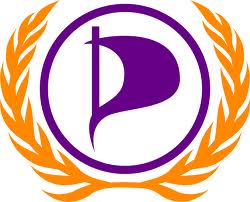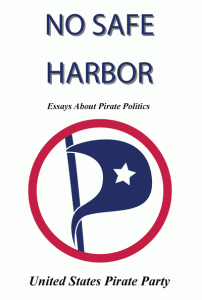
Worth a look.
Pirate Party is a label adopted by political parties in different countries. Pirate Parties support civil rights, direct democracy and participation, reform of copyright and patent law, free sharing of knowledge (Open content), information privacy, transparency, freedom of information, free education, universal health care and a clear separation between church and state.[citation needed] They advocate network neutrality and universal, unrestricted access to the Internet as indispensable conditions to some of this.
Wikipedia: http://en.wikipedia.org/wiki/Pirate_Party

The Pirate Parties International (PPI) is an organization supporting the Pirate Parties around the world. The PPI offers a common resource for international collaboration and can provide help to form a local party in your country. The PPI is a non-governmental organisation (NGO) that exists to help establish, to support and promote, and to maintain communication and co-operation between Pirate Parties around the world. It was officially founded in 2010 during the Brussels conference from April 16th to 18th.
Home Page: http://www.pp-international.net/

The Pirate Party is an American political party founded in 2006 by Brent Allison and Alex English. The party's platform is aligned with the global Pirate movement, and supports reform of intellectual property laws to reflect open source and free culture values, government transparency, protection of privacy and civil liberties, rolling back corporate personhood and corporate welfare, evidence-based policy, and egalitarianism and meritocracy based on the hacker ethic. The party's national organization has existed in multiple incarnations since its 2006 founding. Its most recent is the Pirate National Committee (PNC), formed in 2012 as a coalition of state parties. The PNC officially recognizes Pirate parties from 8 states,[3] and tracks and assists the growth of more state parties throughout the United States.
Wikipedia: http://en.wikipedia.org/wiki/Pirate_Party_%28United_States%29
United States Pirate Party: The party strives to reform laws regarding copyright and patents. The agenda also includes support for a strengthening of the right to privacy, both on the Internet and in everyday life, and the transparency of state government.
YouTubes
(15:10) TEDxObserver – Rick Falkvinge – The Pirate Party – the politics of protest
(5:45) Pirate Party of Canada on CBC's Power & Politics
(6:08) The Pirate Party charts it course | People & Politics
(14:59) TEDxUW – Larry Smith – Why you will fail to have a great career






